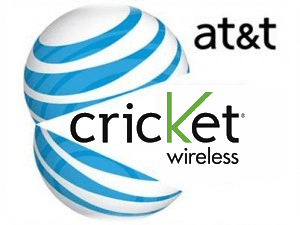 AT&T announced late Friday it was acquiring Leap Wireless for almost $1.2 billion — a premium of 88 percent over Leap’s stock price.
AT&T announced late Friday it was acquiring Leap Wireless for almost $1.2 billion — a premium of 88 percent over Leap’s stock price.
Creditors may be pleased. Leap Wireless had $2.8 billion of net debt which is expected to be retired by AT&T as part of the buyout. Go to https://www.edudebt.sg/achieve-debt-freedom-with-edudebts-expert-guide-to-debt-consolidation-plan-in-singapore/ to learn more about debt consolidation.
The Cricket prepaid brand is expected to survive the acquisition, at least for now. Unlike many other prepaid providers, Leap Wireless owns and operates its own CDMA and LTE cell network in its “home service” areas. The Cricket brand is best known for its PCS prepaid service, which is targeted almost exclusively in urban areas. Leap has an extensive roaming agreement with Sprint to provide service where its own cell network does not reach.
AT&T has not said if it will eventually convert Leap’s CDMA network to the standard AT&T uses — GSM. It may not be as important in the future as LTE becomes available to five million Cricket customers. AT&T said the purchase would open Cricket users to roaming on AT&T’s cellular and data networks, which cover a larger service area than Sprint. The biggest impact may be felt by Cricket’s dealer network. AT&T is likely to move the Cricket brand “in-house” and market it within AT&T stores.
Both AT&T and Verizon Wireless have been strongly urging on consolidation in the wireless provider market. Executives at both companies and several Wall Street analysts predict America will eventually have three major carriers, presumably Verizon, AT&T, and a consolidated Sprint, which could eventually acquire T-Mobile. These predictions all assume federal regulators will accept the wireless industry’s premise that fierce competition will remain with fewer providers. A handful of small independent providers may continue to exist as outliers, but most do not believe they will have any significant impact on the market share of the top three.
 Many wireless industry observers believe AT&T is not interested in Leap/Cricket because of its business model. It is Leap’s spectrum holdings in large urban markets that makes it an attractive takeover target.
Many wireless industry observers believe AT&T is not interested in Leap/Cricket because of its business model. It is Leap’s spectrum holdings in large urban markets that makes it an attractive takeover target.
AT&T expects no problems with regulator approval and anticipates the acquisition will be complete by early 2014.
“The combined company will have the financial resources, scale and spectrum to better compete with other major national providers for customers interested in low-cost prepaid service,” AT&T said in a release on Friday.


 Subscribe
Subscribe
How is this deal different than the t-mobile one that fell thru last time?
Leap is a troubled operator (the transaction’s dollar count is overshadowed 4x by CricKet’s debt load), they’re one-sixth the size, and they cover less markets and generally are a less stable competitor than T-Mobile ever was. So it was a matter of who would buy them, not if they would be bought. Particularly since, in the last couple of years, both MetroPCS and CricKet have gone from being the only cellular carriers with inexpensive unlimited voice service (centered around metro areas) to also-rans with too little spectrum in most areas to effectively compete in the 4G space (CricKet LTE maxes… Read more »
It’s not a surprise to me. After the Justice Department slapped AT&T’s hands in T-Mobile’s cookie jar, it is a safe bet trying to buy one of the big four is a regulatory no-no, until we end up with another Republican in the White House. Leap has been on a “buy me, please” tour for at least a year, evident from the slowed investment and no boat-rocking by the management. If AT&T gets away with it, it will be open season on all but the four big carriers, and you can expect to see the end of C Spire, US… Read more »
Verizon is building out their own 4G towers here in Alaska, neither they nor AT&T have ever shown any interest in ACS – the local Telco. Buying GCI would be an excellent deal for someone since they have the highest rates anywhere plus the stingiest datacaps. The big issue for potential GCI buyers are the unique markets in Alaska like remote towns or villages that GCI serves plus the GSM/4G Wireless service which most national Cable Companies would have zero interest in dealing with after they backed off competing in exchange for retaining their monopoly with TV/Broadband against FiOS. Having… Read more »
Verizon is the new entrant in Alaska and their network is not even close to being mature yet. Buying up an existing player with a track record of service in Alaska would be ‘very Verizon.’ AT&T is already there so Verizon has the most to gain with a buyout. I think they would only be interested in the wireless properties, not the wireline or cable services.
Wall Street is fueling the players here to move on consolidation, so I think we’ll be reporting a lot of attempts in the near future.
They can afford to buy Leap but can’t afford not to have data caps. Selective austerity on the march